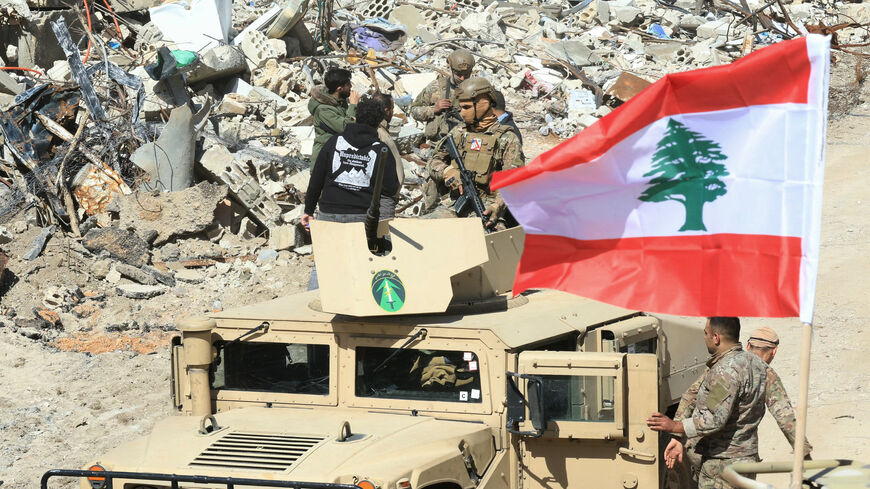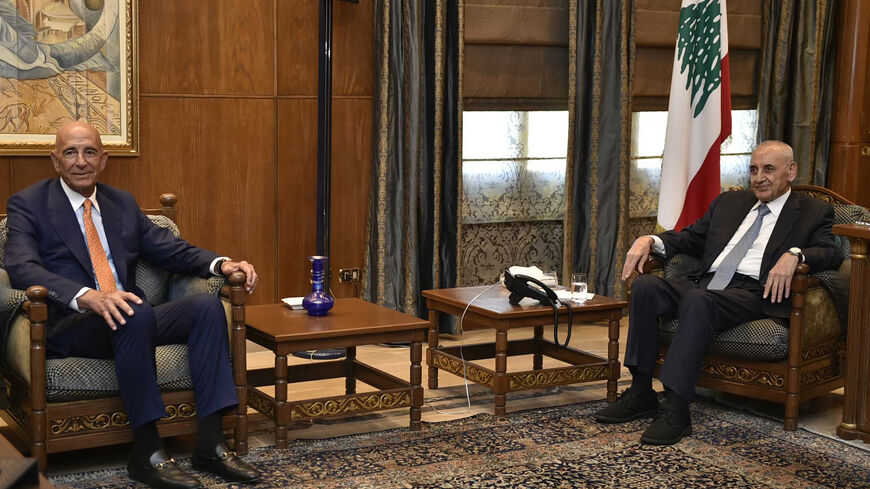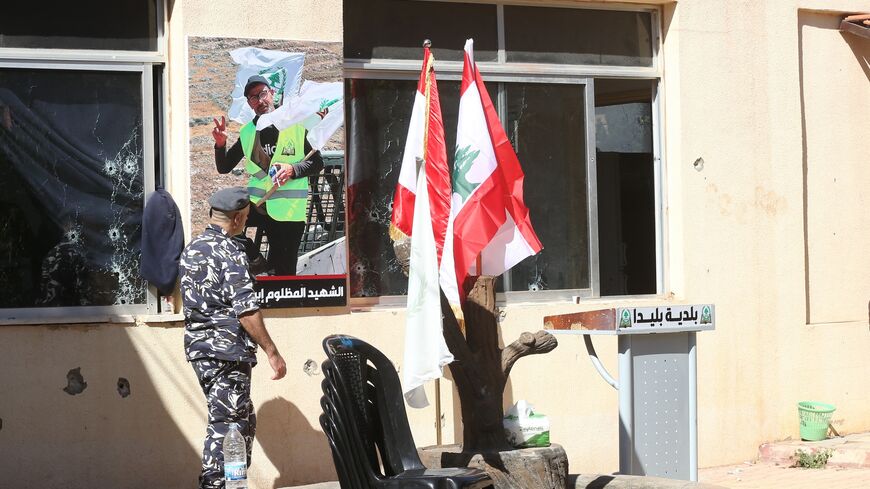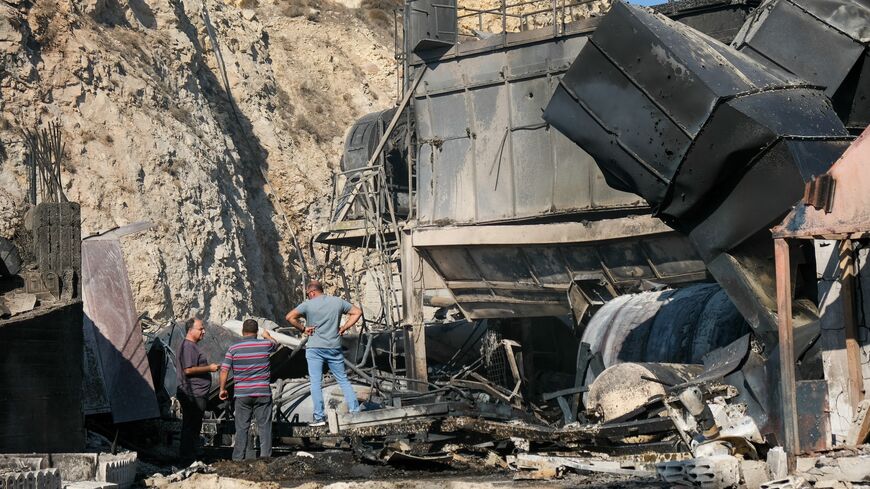Israel strikes Lebanon as pressure mounts in Beirut to disarm Hezbollah
The US demands that the Lebanese cabinet approve a plan on the disarmament of Hezbollah as Israeli attacks in south Lebanon continue despite a ceasefire.
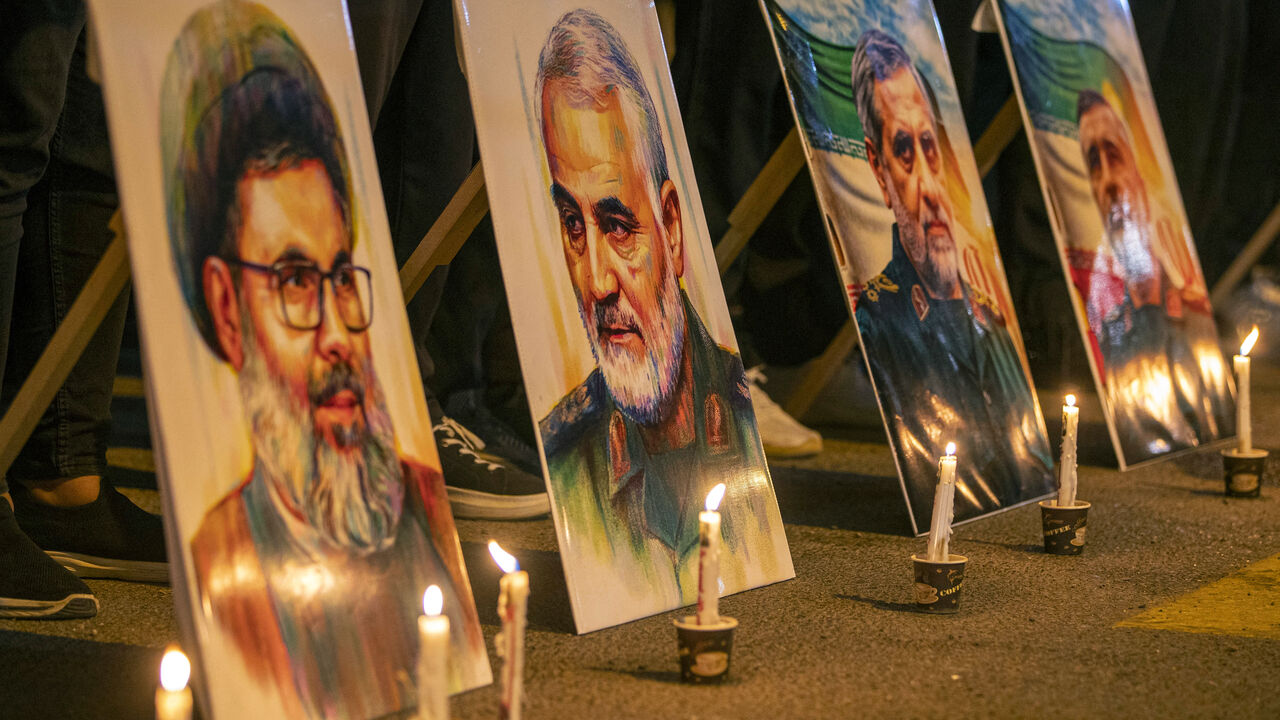
BEIRUT — The Israeli military launched a fresh round of strikes in southern Lebanon on Monday following a weekend of intense bombardment despite a fragile ceasefire that ended the 13-month war between Israel and Lebanon last November.
A suspected Israeli drone strike hit the outskirts of the town of Ramya in the Bint Jbeil district early Monday, the state-run National News Agency reported. The Israeli military has not commented yet.
Meanwhile, Israeli warplanes were flying at a medium altitude over the Rashaya and Western Bekaa regions on Monday, the NNA reported.
What happened: Monday’s strikes come after multiple Israeli attacks in south Lebanon on Saturday left at least three people dead.
One person was killed and another was injured in an Israeli drone strike on a car in the village of Kunin in the Bint Jbeil district. The Israeli military acknowledged the attack, saying it killed Hassan Mohammad Hamoudi, the commander of Hezbollah’s anti-tank missile unit in the Bint Jbeil area.
Meanwhile, two other people were killed in a separate strike on a motorcycle in the town of Mahrouna, near Tyre, later on Saturday. It remains unclear if any of those killed were members of Hezbollah.
Israel has been escalating its strikes in south Lebanon, where it says its operation is intended to eliminate the remaining threat of Hezbollah.
Hezbollah chief Naim Qassem condemned the strikes on Nabatiyeh and said the Lebanese state must fulfill its responsibilities.
“Do you think we will remain silent forever? No, all this has limits," he warned in a speech on Saturday, saying that his group will not surrender its weapons as long as Israeli attacks continue. "You have tested us, and you want to do it again? Try!”
Lebanese officials have repeatedly condemned the ongoing Israeli attacks on Lebanon as a violation of the ceasefire.
The ceasefire, which the United States helped broker, called for Hezbollah to relocate its fighters and military infrastructure north of the Litani River — about 30 kilometers (18 miles) from the border with Israel — and for an increased deployment of Lebanese soldiers in the area to prevent Hezbollah from rearming.
The ceasefire also stipulated the withdrawal of Israeli troops from five border villages it occupied during the war by Jan. 26. The deadline was extended twice as Israel failed to remove its forces. The Israeli military has said its troops will remain in these five locations “to defend Israeli citizens.”
The conflict between Hezbollah and Israel erupted on Oct. 8, 2023, after Hezbollah launched rockets and mortars at Israeli positions in support of Hamas in the Gaza Strip. The cross-border hostilities escalated last September into a full-scale war that killed nearly 4,000 people and injured over 15,000 others in Lebanon. Meanwhile, Israeli authorities say Hezbollah attacks in Israel killed at least 45 civilians and 73 soldiers.
Why it matters: The Lebanese military says its forces have dismantled over 500 Hezbollah military sites south of the Litani River in accordance with the ceasefire.
During a meeting in Beirut on Monday with the newly appointed commander of the UN peacekeeping forces (UNIFIL) deployed in south Lebanon, Gen. Diodato Abagnara, Aoun reiterated his call for Israel to withdraw from the five occupied villages in order to allow the military to complete its deployment along the border as stipulated in the ceasefire.
According to a presidential statement, he also stressed the importance of the ongoing coordination between UNIFIL and the military in the south to ensure the full implementation of UN Security Council Resolution 1701, which ended the 2006 war with Israel and on which the November ceasefire is largely based.
Meanwhile, Washington is pressing Lebanese authorities to completely disarm the Iran-backed Hezbollah group.
US envoy Tom Barrack, who was in Beirut earlier this month, presented to Lebanese officials a political and security road map to restore state sovereignty and extend state control over weapons.
According to several local reports, including one from L’Orient Today, the proposal calls on the Lebanese government to adopt a plan to disarm Hezbollah within two weeks. Once that’s done, Washington would pressure Israel to withdraw from one of the five villages it continues to occupy in the south.
However, Lebanese officials told Al-Jadeed on Sunday that Lebanon has submitted a counterproposal, according to which the Lebanese government would announce a formal decision to remove Hezbollah's weapons, followed by a gradual Israeli withdrawal from the border villages. Then, all relevant weapons north of the Litani River would be confiscated, in parallel with the full Israeli withdrawal from Lebanon.
Prominent Lebanese Druze leader Walid Jumblatt called on all parties in the country to surrender their weapons. Speaking at a press conference last Thursday, Jumblatt, who is also the former head of the Progressive Socialist Party, said his party had already turned over its weapons to the Lebanese state, calling on other factions, including those in the Palestinian refugee camps, to do the same. He did not name Hezbollah specifically.
"If any Lebanese or non-Lebanese party possesses weapons, it must hand them over to the state in the appropriate manner," he said.
Know more: As pressure mounts on Lebanon to disarm Hezbollah, Lebanese authorities are increasing security measures against efforts to smuggle funds or weapons through the country’s main airport.
Authorities at Lebanon’s Beirut Rafic Hariri Airport reportedly seized $7 million in cash that was concealed in suitcases.
According to judicial sources to the Saudi-owned Al-Arabiya and al-Hadath TV stations, the cash was discovered in suitcases aboard a flight arriving from an African country to Lebanon. The smuggled funds belonged to Lebanese men from a town in south Lebanon, the same sources said without revealing more details.
Al-Jadeed also reported the incident, saying a total of $6.8 million were seized at the airport on June 19. The cash was concealed in suitcases belonging to three people arriving from Congo on a flight organized by an Ethiopian company.
In February, authorities also confiscated $2.5 million in cash from a passenger coming from Turkey. The funds were reportedly bound for Hezbollah.
Ever since Hezbollah lost its key supply route from Iran via Syria after the fall of the Assad regime in December 2024, Iran has reportedly sought alternative means of delivering weapons and funds, including through an air corridor to Lebanon.

